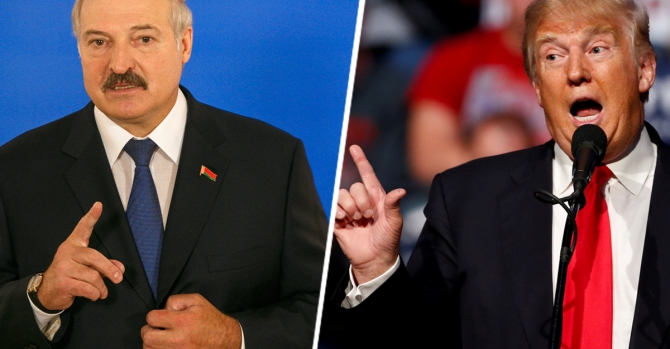US Prolong Sanctions Against President Lukashenko And Other Officials
BelarusFeed
17 June 2019, 17:29
 US President Donald Trump extended sanctions against a number of Belarusian citizens and members of the country’s government, the White House press service reports.
US President Donald Trump extended sanctions against a number of Belarusian citizens and members of the country’s government, the White House press service reports.
Sanctions against Belarus President Alexander Lukashenko and some officials have been extended by the U.S. government since 2006.
This year the sanctions are prolonged until 16 June, 2020. The relevant notice was sent to the representatives of the U.S. Congress.
“The actions and policies of certain members of the Government of Belarus and other persons to undermine Belarus’s democratic processes or institutions, to commit human rights abuses related to political repression, and to engage in public corruption continue to pose an unusual and extraordinary threat to the national security and foreign policy of the United States,” the message reads.
Recall that the sanctions against Alexander Lukashenko and a number of officials and their relatives had been introduced on 16 June 2006, by George W. Bush.
Restrictive measures were imposed after the presidential elections in Belarus, which the United States and the EU recognized as undemocratic. At present, there are ten people on the blacklist.
Alexander Lukashenko, Viktor Lukashenko, Lidia Yermoshina, Viktor Golovanov, Viktor Sheiman, Dmitry Pavlichenko, Stepan Sukhorenko, Alexander Zimovsky, Vladimir Naumov and Natalia Petkevich are among them.
Sanctions block accounts of these individuals in the U.S. banks, prohibit having a property in the U.S and the entry to the states, as well as prohibit American companies from having any business with these persons.
Since 2006, the U.S. has also introduced sanctions against Belarusian enterprises. In 2015, the sanctions were suspended, then this decision was extended several times.
The suspension of sanctions was caused by the release of political prisoners, peaceful elections in 2015, and the entering of the first opposition MPs to parliament in 2016.
17 June 2019, 17:29

Sanctions against Belarus President Alexander Lukashenko and some officials have been extended by the U.S. government since 2006.
This year the sanctions are prolonged until 16 June, 2020. The relevant notice was sent to the representatives of the U.S. Congress.
“The actions and policies of certain members of the Government of Belarus and other persons to undermine Belarus’s democratic processes or institutions, to commit human rights abuses related to political repression, and to engage in public corruption continue to pose an unusual and extraordinary threat to the national security and foreign policy of the United States,” the message reads.
Recall that the sanctions against Alexander Lukashenko and a number of officials and their relatives had been introduced on 16 June 2006, by George W. Bush.
Restrictive measures were imposed after the presidential elections in Belarus, which the United States and the EU recognized as undemocratic. At present, there are ten people on the blacklist.
Alexander Lukashenko, Viktor Lukashenko, Lidia Yermoshina, Viktor Golovanov, Viktor Sheiman, Dmitry Pavlichenko, Stepan Sukhorenko, Alexander Zimovsky, Vladimir Naumov and Natalia Petkevich are among them.
Sanctions block accounts of these individuals in the U.S. banks, prohibit having a property in the U.S and the entry to the states, as well as prohibit American companies from having any business with these persons.
Since 2006, the U.S. has also introduced sanctions against Belarusian enterprises. In 2015, the sanctions were suspended, then this decision was extended several times.
The suspension of sanctions was caused by the release of political prisoners, peaceful elections in 2015, and the entering of the first opposition MPs to parliament in 2016.

